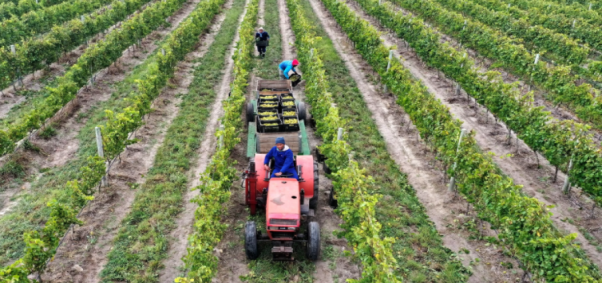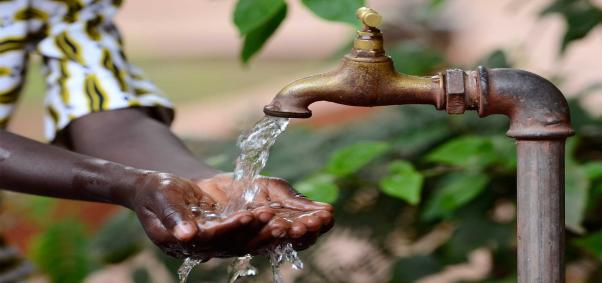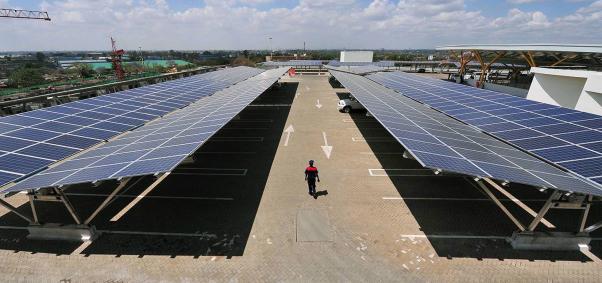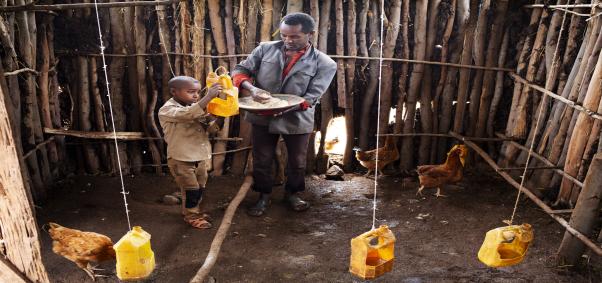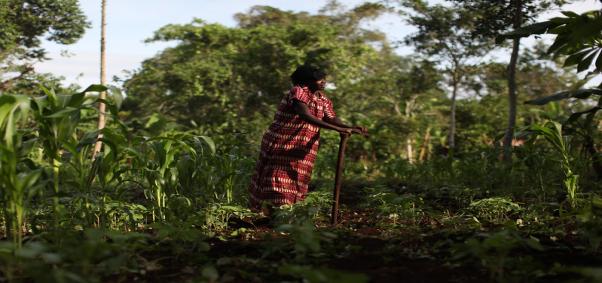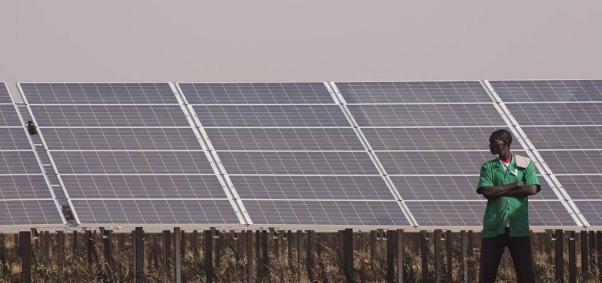
Victoria Falls, October 28, 2015: New research from the New Climate Economy outlines opportunities to transform and expand the supply of energy in Africa, spurring development and reducing negative health and environmental effects. The two papers on investment in the electric grid and clean cookstoves were launched today at the Climate Change and Development in Africa conference in Victoria Falls, Zimbabwe.
The first paper, Building electricity supplies in Africa for growth and universal access, recommends that African governments review national power plans to ensure they take advantage of recent dramatic reductions in renewable energy costs and consider the role of off-grid electricity as an essential component of ensuring wider access.
“More than half of Africa’s population does not have access to electricity, and even among those who do, blackouts can be common,” said Andrew Scott, the paper author and a Research Fellow at the Overseas Development Institute. “Investment in the electricity grid will need to be ramped up in the coming years in order to support economic growth and allow for universal access.”
The current level of investment in sub-Saharan electricity systems is only about US$8 billion a year, according to the IEA, but must reach US$46 billion a year over the next 25 years to meet demand. To reach the required investment, African governments must attract more international commercial lenders and foreign equity, in addition to funding from domestic investors and development finance institutions.
“Thankfully, Africa’s renewable energy resources are substantial,” said Helen Mountford, Programme Director of the New Climate Economy. “With the right investment, they’ll be more than enough to meet future energy demand. The potential for solar PV alone has been estimated at 6,500 TWh a year, almost three times the expected demand in 2040.”
In addition, the total potential for concentrated solar power is estimated at 4,700 TWh a year, and wind power at 2,800 TWh a year. For every MW of renewable energy installed in Africa, 27 jobs could be created, according to IRENA.
Governments also need to make connecting to the grid more affordable, the paper suggests. For instance, a World Bank study of 15 African countries found that connection charges averaged US$168, high by international standards, which poses a barrier to access. These costs could be reduced by spreading them out over a long time rather than all up-front.
The second paper, Bringing clean, safe, affordable cooking energy to households across Africa, recommends that policy-makers move cookstove markets away from traditional biomass towards clean fuels or electricity. 730 million people in Africa use traditional biomass to cook meals, a number expected to reach 900 million in the next 5 years under a business-as-usual scenario.
Traditional biomass cookstoves have serious health, environmental, and economic costs. An estimated 600,000 Africans die prematurely each year from the impacts of exposure to biomass smoke. If left unchecked, the greenhouse gas emissions from fuelwood use could rise to 6.7 Gt of CO2e by 2050, about 6% of Africa’s total projected 2050 emissions.
When considering all the impacts, biomass cookstoves could cost the region approximately US$60 billion a year, according to the World Bank. The time spent gathering fuel and cooking on traditional stoves alone wastes almost US$30 billion in lost productivity.
“A large scale shift to cleaner cookstoves, that are sold, supported and, ideally, manufactured locally to meet local needs, would lead to health improvements and create business opportunities and jobs in sub Saharan Africa,” said Fiona Lambe, lead author of the paper and a Research Fellow at the Stockholm Environment Institute. “And households will also quickly see economic benefits: for instance, improved charcoal stoves cost as little as US$7 and can save a household US$168 annually on fuel.”
The associated climate benefits are substantial. One improved biomass stove reduces greenhouse gas emissions by an average of 1.5 tonnes CO2e per year; an ethanol stove avoids as much as 1.85 tonnes CO2e per year. If these improvements led to a 50% reduction in biomass use, the region could be expected to save as much as 190 Mt CO2e of greenhouse gases, especially if the improvements are made to cookstove efficiency, rather than fuel switching.
-ENDS-
Notes to Editors:
Building electricity supplies in Africa for growth and universal access and Building clean, safe, affordable cooking energy to households across Africa are New Climate Economy working papers and were provided as input to the 2015 Africa Progress Panel Report.
The New Climate Economy is the flagship project of the Global Commission on the Economy and Climate. It was established by seven countries: Colombia, Ethiopia, Indonesia, Norway, South Korea, Sweden and the United Kingdom, as an independent initiative to examine how countries can achieve economic growth while dealing with the risks posed by climate change.
Chaired by former Mexican President Felipe Calderón, and co-chaired by renowned economist Lord Nicholas Stern, the Commission comprises 28 leaders from 20 countries, including former heads of government and finance ministers, leading business people, investors, city mayors and economists.
Research for the Commission has been carried out by a partnership of leading global economic and policy institutes, including the World Resources Institute (Managing Partner), the Climate Policy Initiative, the Ethiopian Development Research Institute, the Global Green Growth Institute, Indian Council for Research on International Economic Relations, the Overseas Development Institute, the Stockholm Environment Institute and Tsinghua University.
For more information go to www.newclimateeconomy.net
For media inquiries contact:
Ferzina Banaji, Ferzina.banaji@newclimateeconomy.net
Austin Morton, Austin.morton@newclimateeconomy.net
Joel Jaeger, Joel.jaeger@newclimateeconomy.net
Photo credit: Flickr/Solar Electric Light Fund

